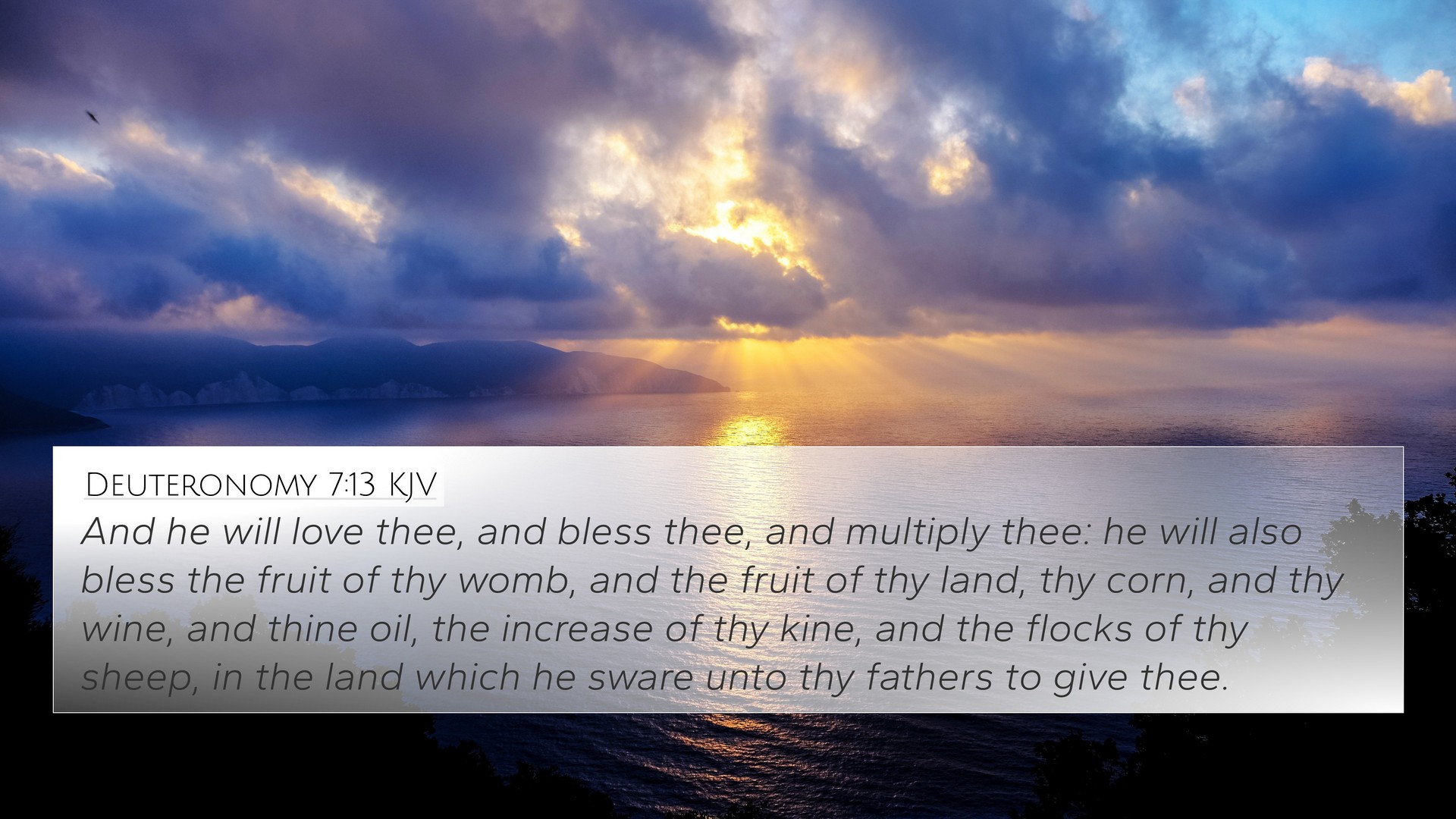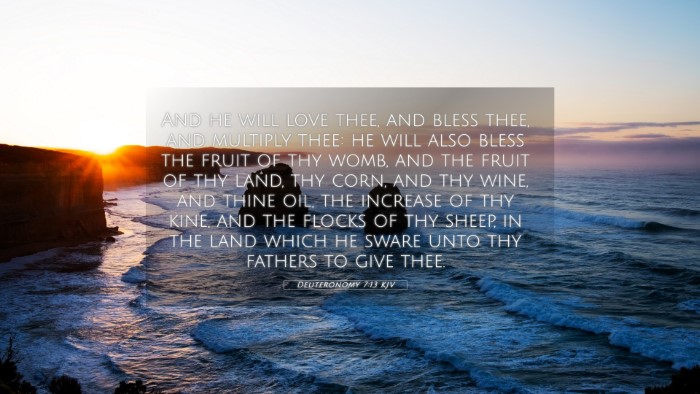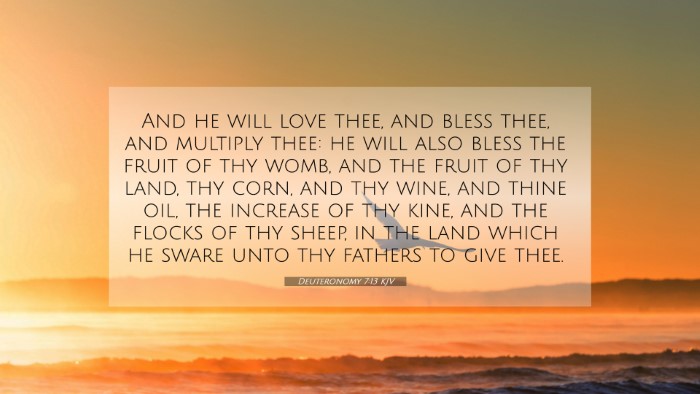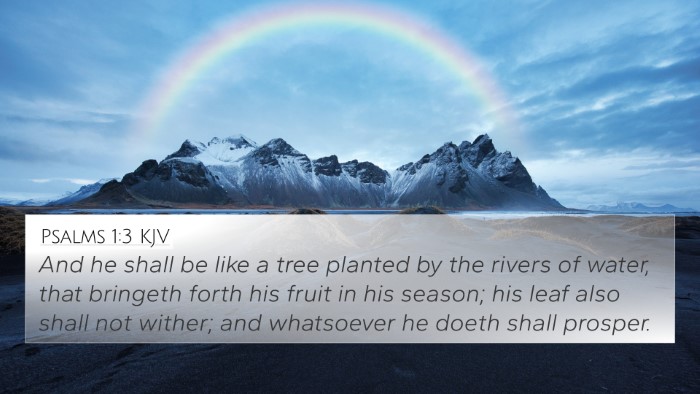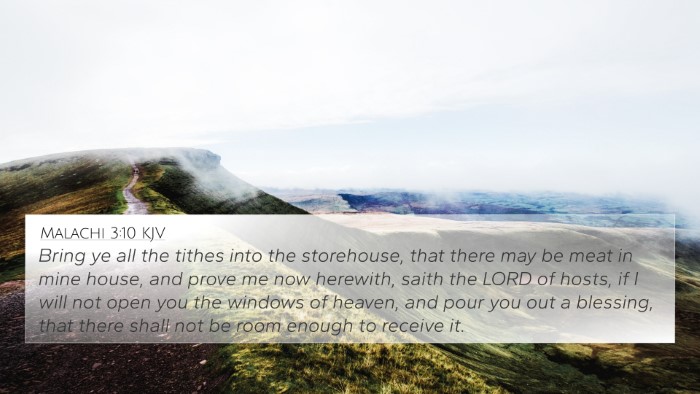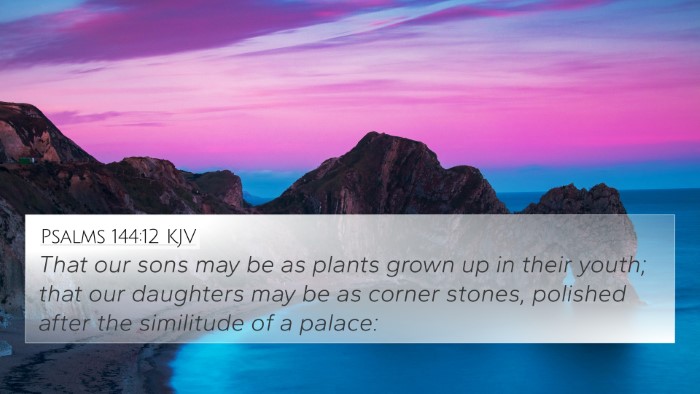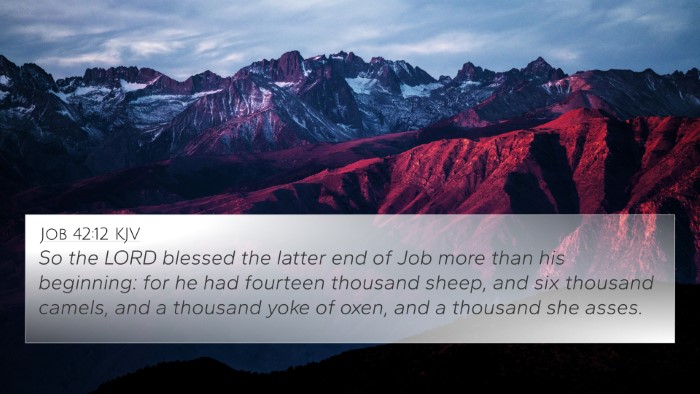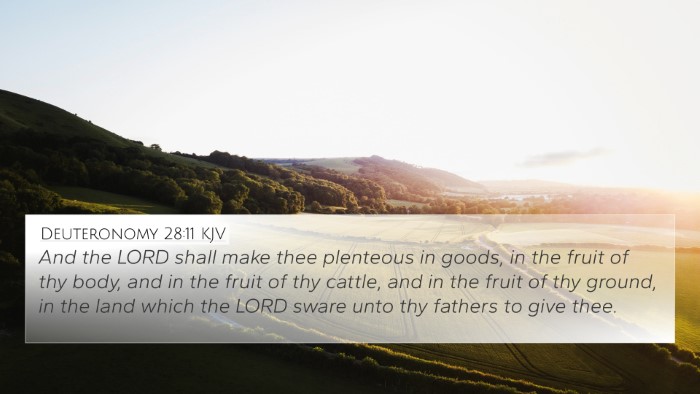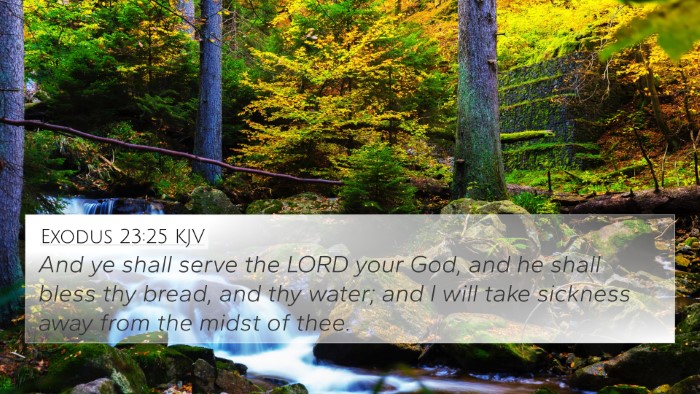Understanding Deuteronomy 7:13
Verse: Deuteronomy 7:13 - "And he will love thee, and bless thee, and multiply thee: he will also bless the fruit of thy womb, and the fruit of thy land, thy corn, and thy wine, and thine oil, the increase of thy kine, and the flocks of thy sheep, in the land which he sware unto thy fathers to give thee."
Summary and Interpretation
The verse emphasizes God’s promises to Israel, highlighting His commitment to bless His people abundantly. This blessing encompasses various aspects of life, including family, agriculture, and livestock, representing the totality of what constitutes well-being and prosperity in the ancient Near Eastern context.
Insights from Commentaries
-
Matthew Henry: Henry reflects on the unconditional nature of God’s love and blessings, indicating that these gifts are tied to His covenant. The emphasis on the “fruit of thy womb” suggests blessings upon future generations and the continuity of Israel as a nation.
-
Albert Barnes: Barnes notes that the blessings mentioned are both spiritual and material. He highlights how the fruitfulness of the land and the prosperity of livestock are directly linked to obedience to God's commands, thus framing the verse within the broader context of covenant obedience.
-
Adam Clarke: Clarke elaborates on the specific blessings described, including the significance of wine and oil as staples of economy and sustenance. He underscores that these blessings are not just physical but also emblematic of divine favor and presence in the lives of God’s people.
Thematic Connections
This verse forms a critical part of the grand narrative of Israel's relationship with God, showcasing the divine promise that shapes many subsequent biblical texts. Below are notable cross-references related to Deuteronomy 7:13:
- Genesis 28:3: A similar promise of blessing and multiplication.
- Exodus 23:25-26: Affirmation of blessings for obedience.
- Leviticus 26:3-5: Further elaboration on agricultural blessings linked to covenant faithfulness.
- Deuteronomy 28:1-14: A comprehensive list of blessings for those who obey God's law.
- Psalms 128:1-4: Assurance that the blessed life is rooted in reverence for God.
- Jeremiah 29:11: God’s plan to prosper His people amidst their circumstances.
- Matthew 6:33: The call to seek first the kingdom of God, promising that all needs will be met.
- John 10:10: Jesus speaks of having life in abundance, linking spiritual fullness to the blessings described in the Old Testament.
Cross-Referencing Themes
Understanding Deuteronomy 7:13 in conjunction with related scriptures provides a richer insight into how God operates through covenant relationships. The blessings promised not only underscore the agricultural aspect of life in Ancient Israel but also serve to remind contemporary readers of God’s continual faithfulness and commitment to those who follow Him.
Building Connections
Through tools for Bible cross-referencing, individuals can identify connections between Old and New Testament themes, such as obedience, divine favor, and community prosperity. Resources like a Bible concordance or a Bible cross-reference guide can help explore these complex inter-biblical dialogues.
Application for Study
For those studying scripture, identifying parallels in themes across various verses can deepen understanding. For example, exploring how blessings for obedience in Deuteronomy relate to Jesus's teaching in the Gospels can offer insights into the continuity of God's message throughout biblical history.
Conclusion
In sum, Deuteronomy 7:13 is rich with promises and relationships that shape the identity of God’s people and reinforce the significance of obedience to His commands. The verse not only illustrates God's immediate blessings but also sets a foundation for understanding the broader biblical narrative of grace and promise.
